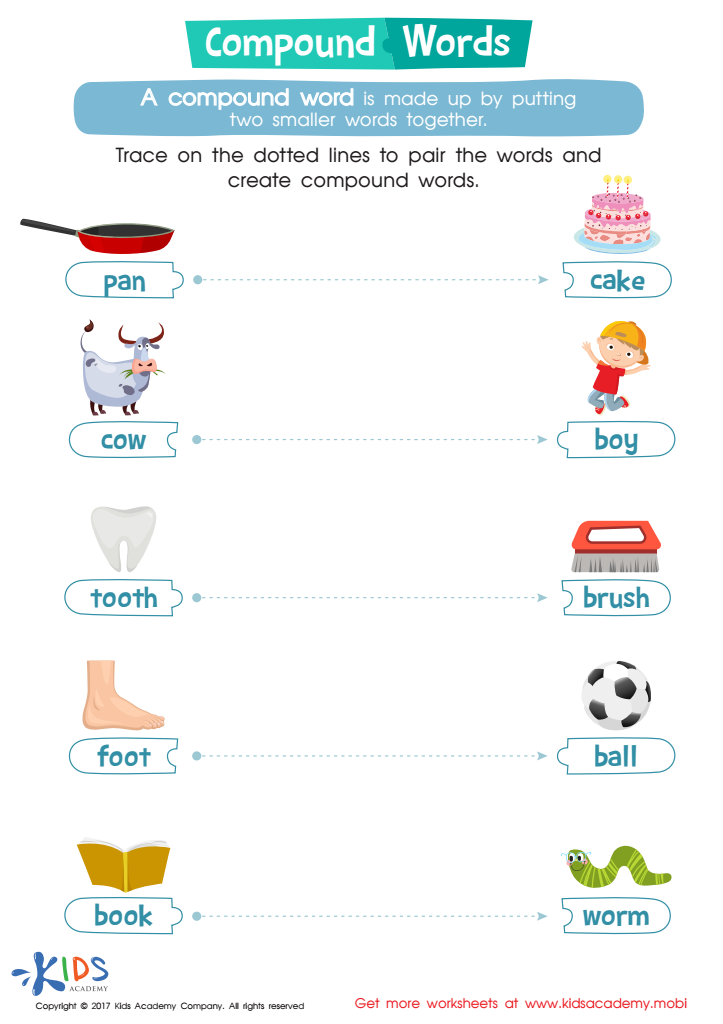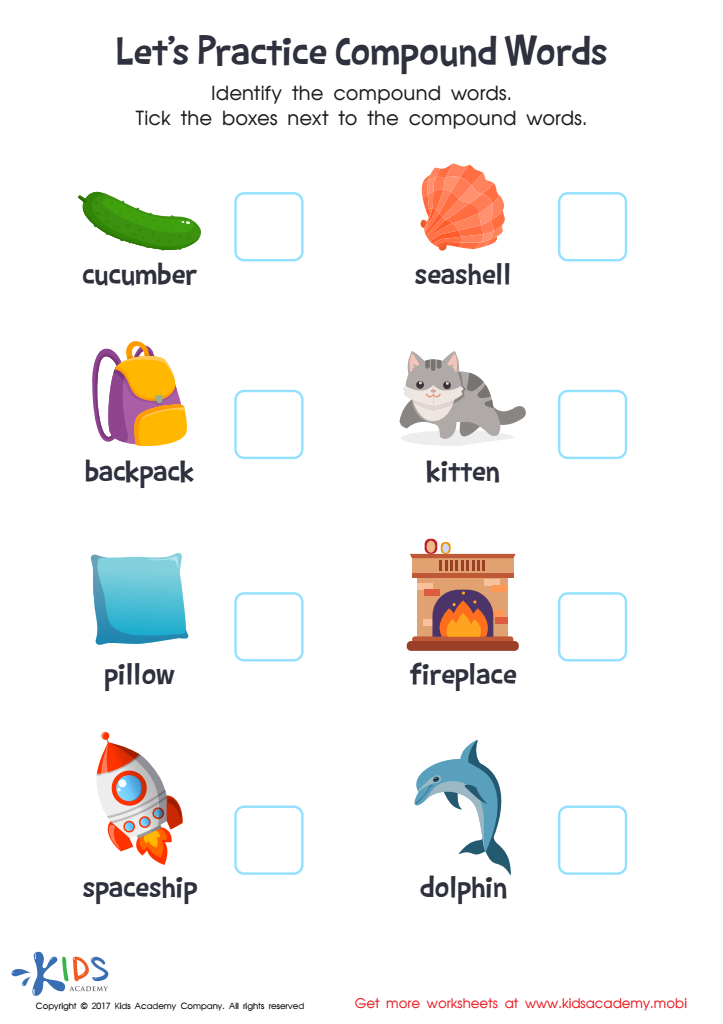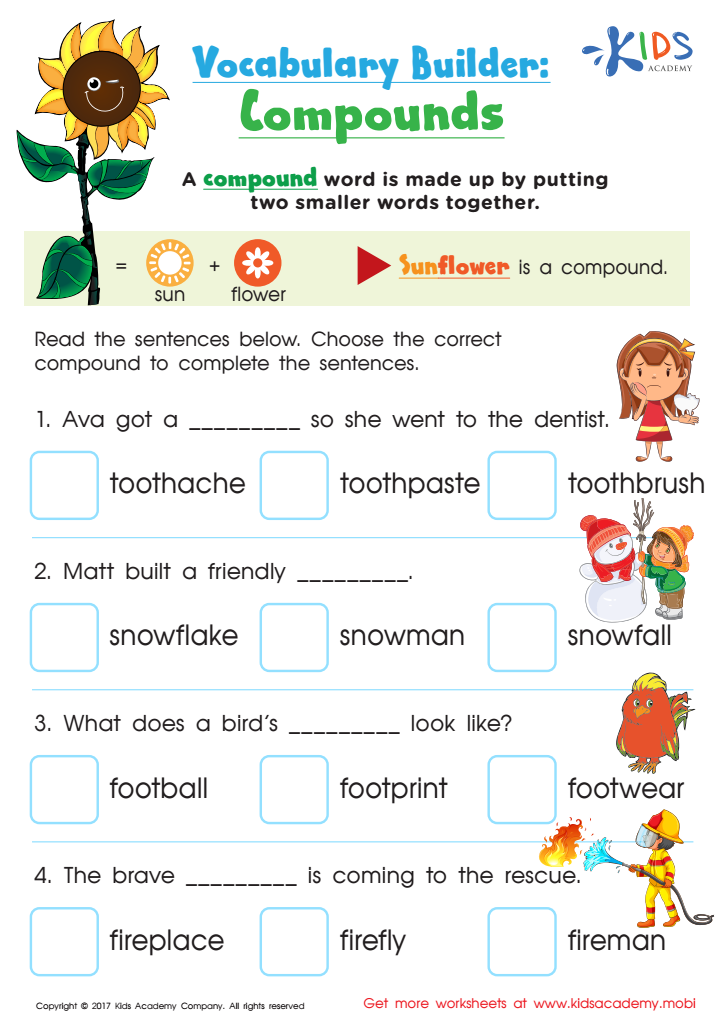Understanding compound words Worksheets for Ages 4-9
3 filtered results
-
From - To
Unlock the world of language with our engaging "Understanding Compound Words Worksheets" designed for kids ages 4-9! These printable worksheets make learning fun and interactive, allowing young learners to explore the concept of compound words through dynamic activities such as matching games, fill-in-the-blanks, and creative puzzles. By combining familiar words, children enhance their vocabulary and improve their reading skills. Perfect for use in the classroom or at home, these resources provide an excellent way to reinforce language skills and nurture a love of learning from an early age. Start your child’s journey to mastering compound words today!


Compound Words Word Structure Worksheet


Let's Practice Compound Words Word Structure Worksheet


Compound Words Worksheet
Understanding compound words is crucial for children aged 4-9 as it lays the foundation for literacy and language development. For parents and teachers, recognizing the importance of compound words can significantly enhance a child's reading and vocabulary skills.
Firstly, compound words—formed by combining two or more words such as 'sunflower' or 'toothbrush'—help children understand the relationship between words, enriching their linguistic awareness. This understanding fosters stronger decoding skills, enabling them to sound out and pronounce unfamiliar words.
Additionally, exposure to compound words aids in comprehension and storytelling abilities. Children who grasp how words can be formed together can create their own imaginative phrases and expand their creativity in both writing and speaking.
Moreover, focusing on compound words during early education promotes collaborative learning. Activities like word creation games or read-aloud sessions can engage students and create a fun learning environment. This ultimately strengthens the bond between educators and students or parents and children.
In summary, understanding compound words is a vital step in a child's literacy journey, equipping them with essential skills for effective communication and fostering a love for reading. Therefore, the involvement of parents and teachers in this developmental phase is essential for a successful transition into more complex language use.
 Assign to My Students
Assign to My Students




















